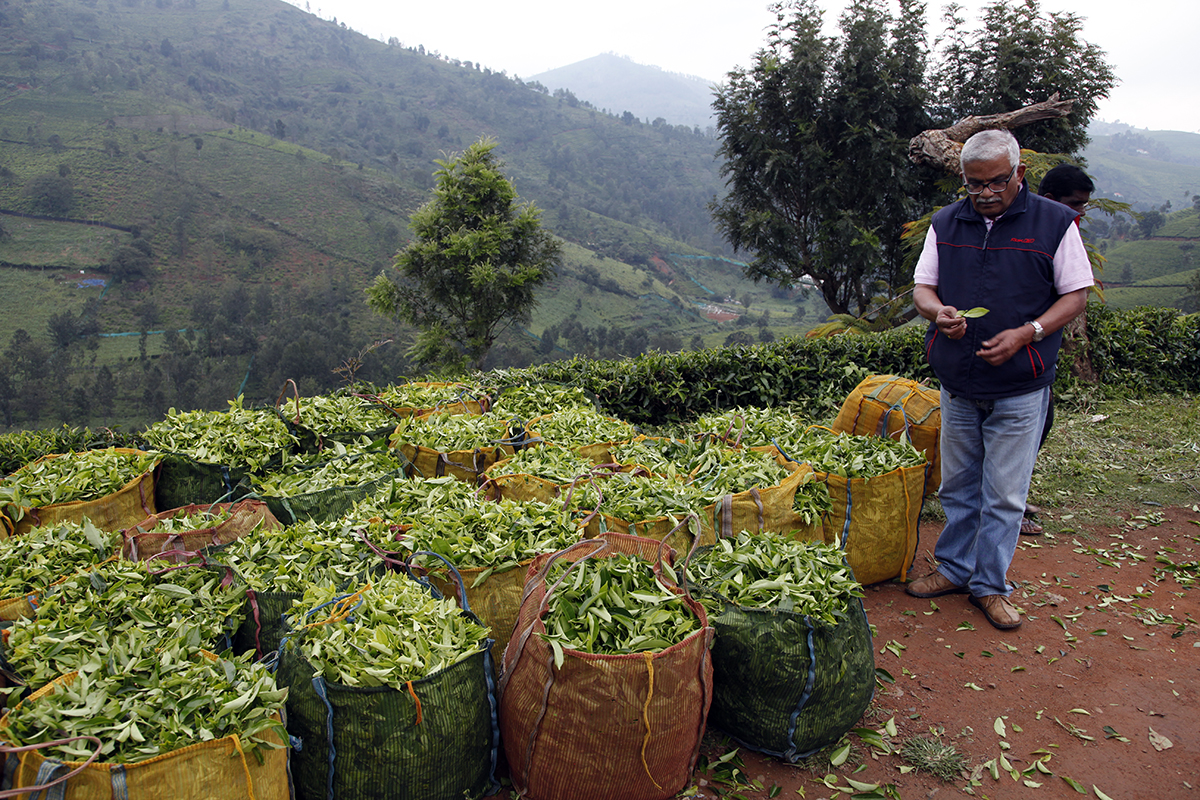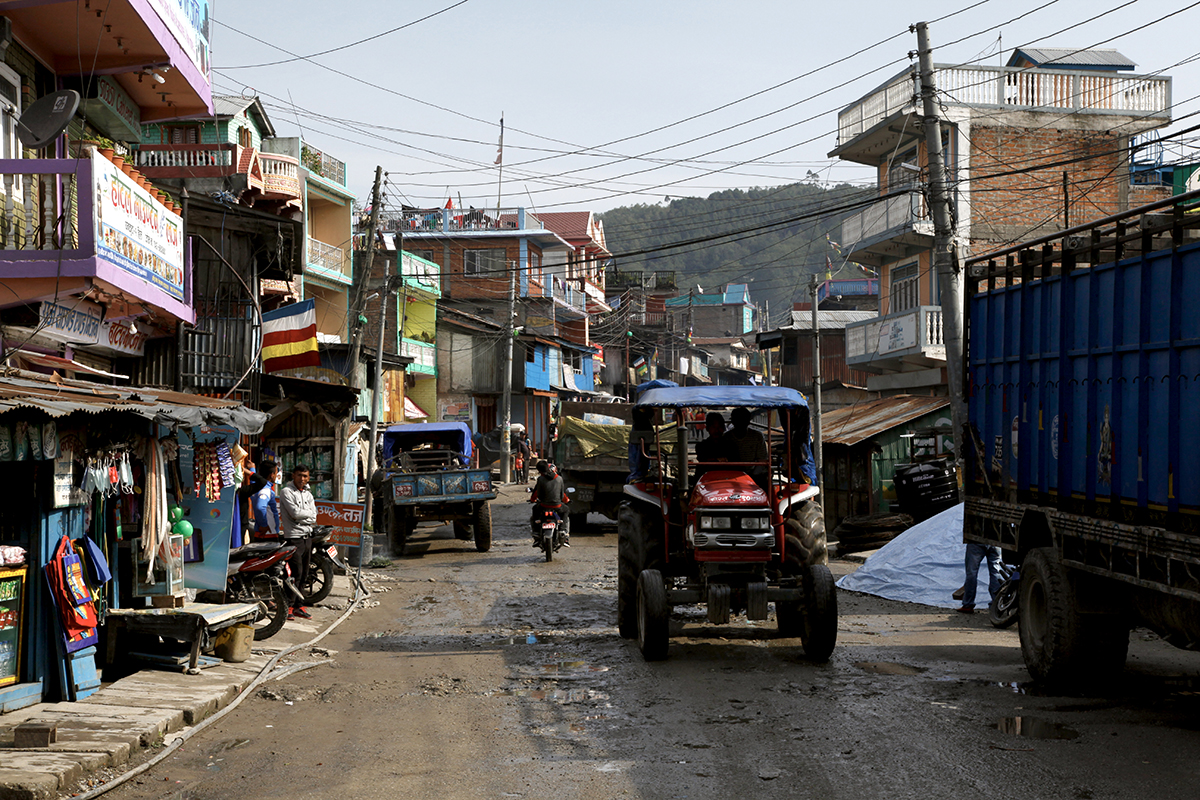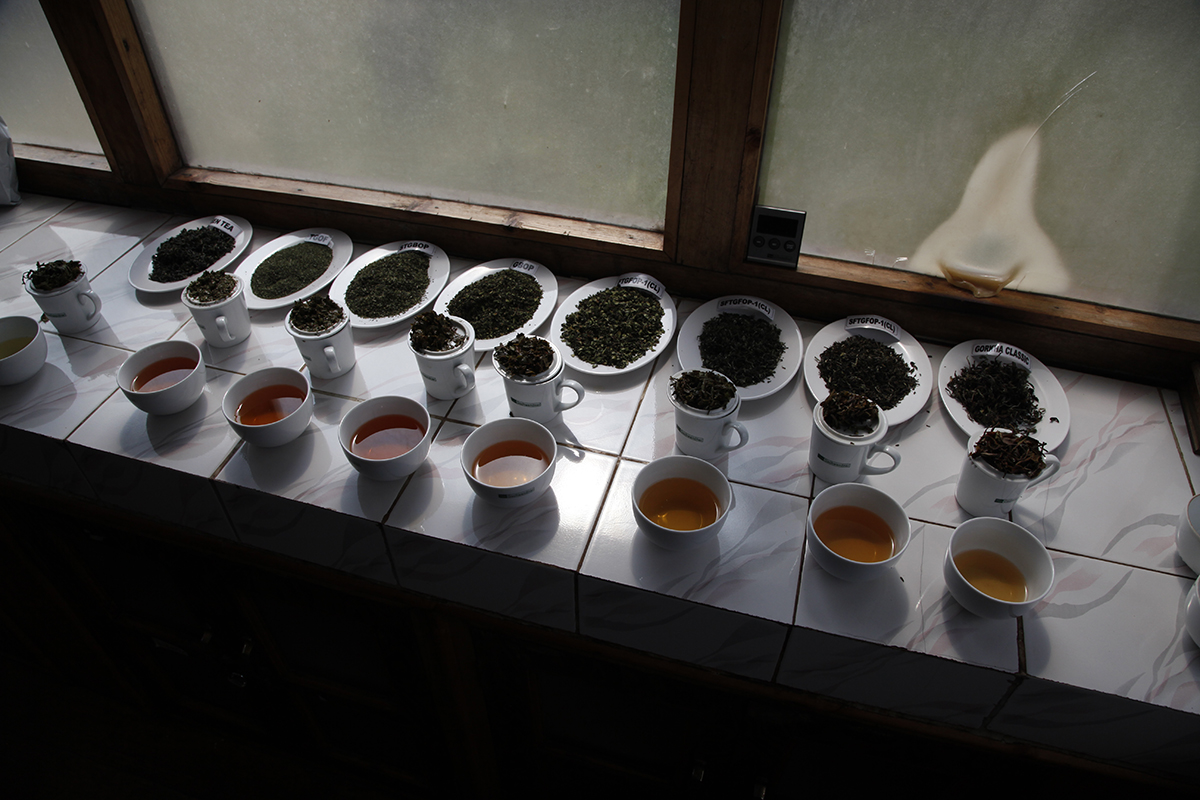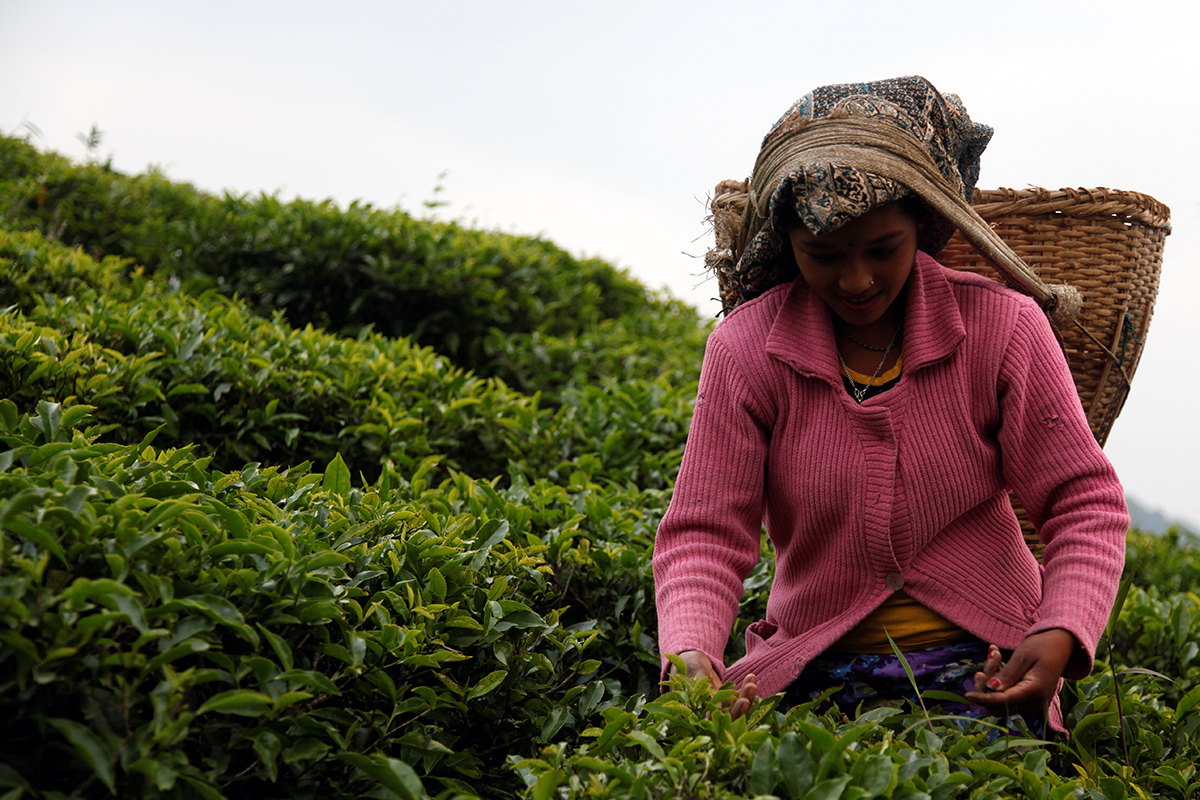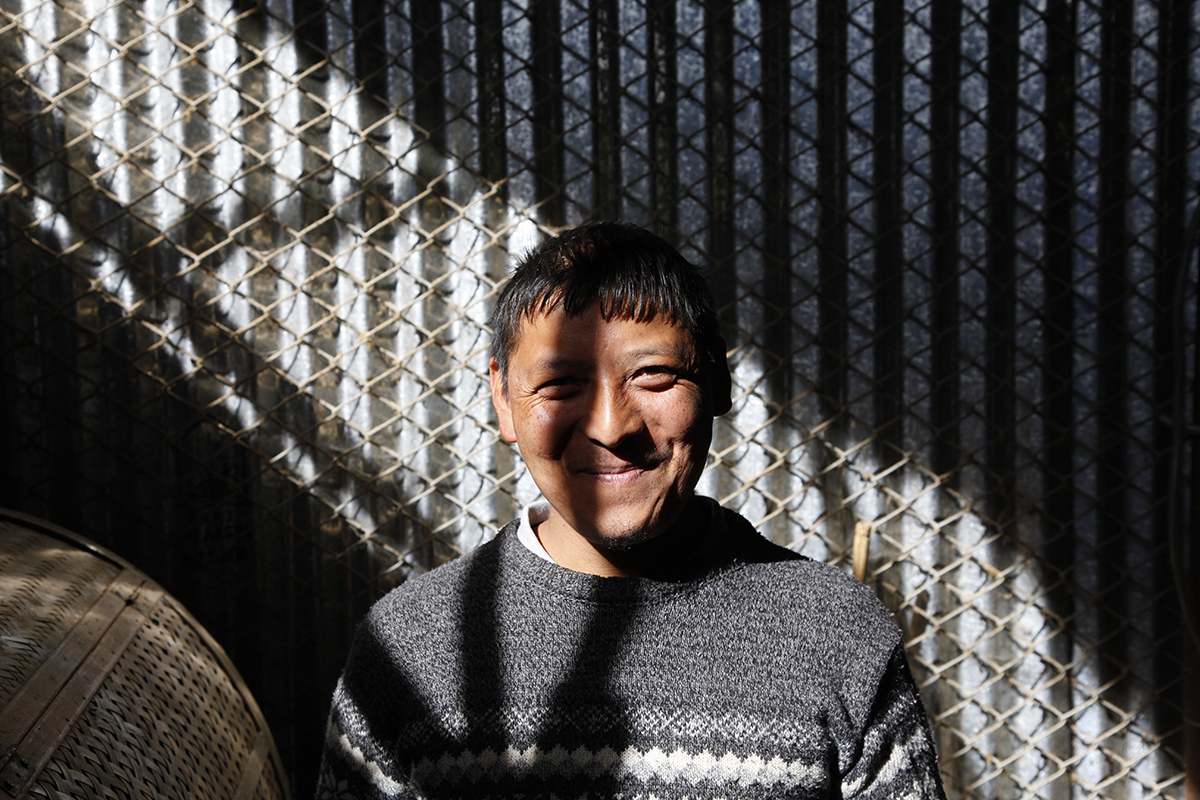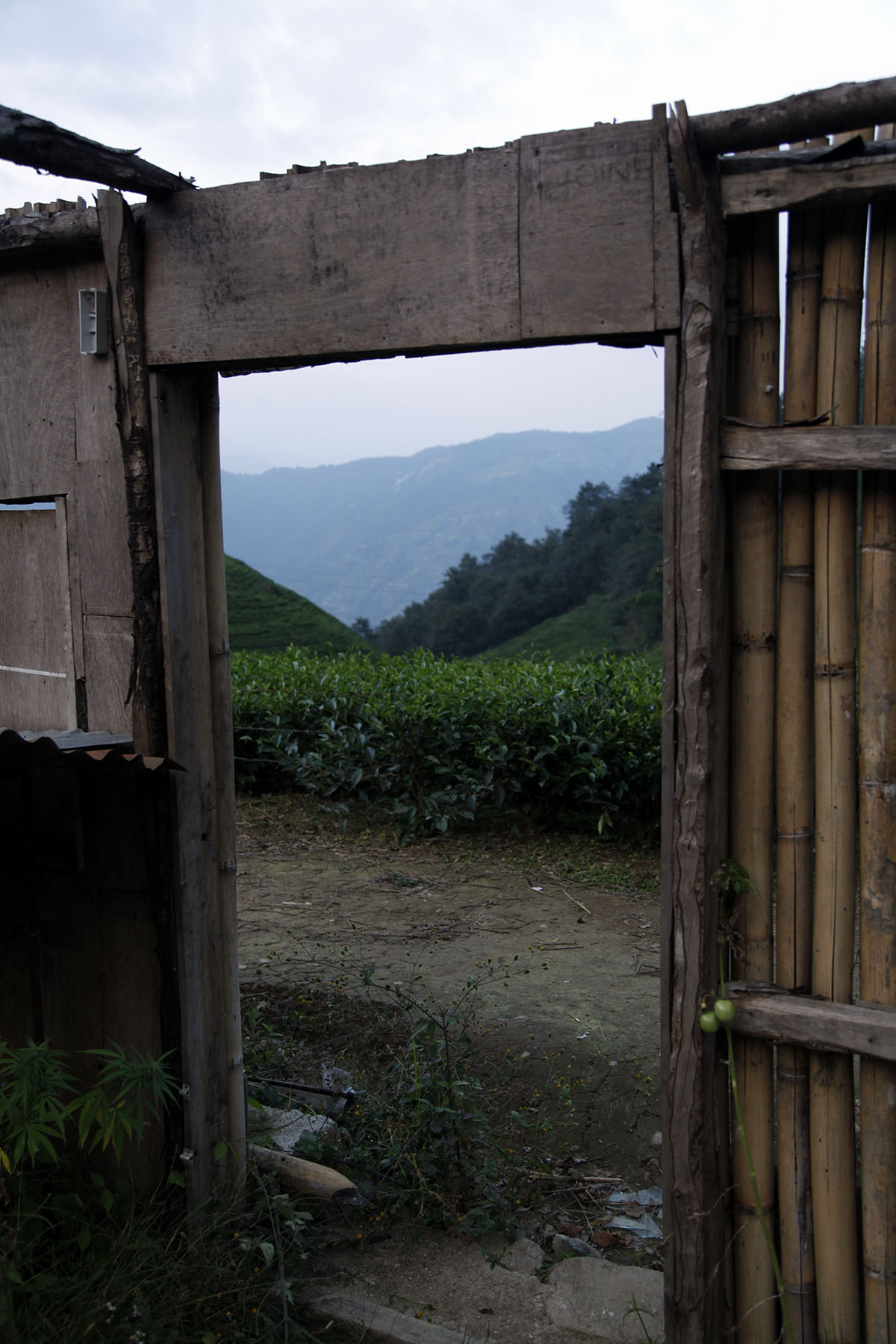On my way to Ilam valley, I stop in Kathmandu. Matthieu Ricard invited me to the Shechen monastery for the celebration of Tshechu, a festival that includes the performance of sacred Tibetan dances. On the eve of the big day, the monks rehearse. Tomorrow, they will take to the stage again, this time wearing a heavy, lavish costume and an impressive mask.
Nepal
Responsible tea growing
I’m back from Nepal, happy and surprised, after a trip with my friends from Karuna-Shechen, the non-profit association founded by Matthieu Ricard. I asked them to accompany me deep into the country’s easternmost valley to see for themselves the living conditions of the pickers in this region. My aim was to convince them of the benefits of Palais des Thés and Karuna working together to improve the villagers’ living conditions. But after we’d spoken with a number of people in their local language, Karuna’s enthusiastic response left me stunned. Their answer was this: in the 10 years since these villagers have been growing tea, their living conditions have improved to such an extent that we don’t need to be focusing our efforts on supporting them. Instead, it’s important for us to understand how worthwhile tea growing has been for these people, and how producing quality tea that costs 20 or 30 times more than mediocre tea has empowered an entire community to be able to take charge of its own future.
It now remains to be seen how we can help the people we visited so we don’t disappoint them, and above all to understand how this model of responsible tea growing could be easily duplicated.
My Indian friends
The terrible situation in India due to the pandemic, which I hope will spare Nepal, reminds me – not that I need it – how dear my Indian friends are to me. There are too many to name all of them, in Darjeeling, Kolkata and elsewhere. One of them is my friend Anil Darmapalan, who I first met more than 20 years ago when he was running the Thiashola plantation. He gave me such a warm welcome, along with his wife Sharmila and all the plantation staff.
After having been an auditor for a certification organisation, and therefore particularly aware of all the issues involved with converting a conventional plantation into a biodynamic one, Anil now lives near Ooty (Tamil Nadu), surrounded by flowers. I’m thinking of Sharmila and Anil, and all my Indian friends, and hoping they stay well.
I miss the hubbub
I miss the roads of Nepal, the streets that run through mountain villages, the tracks that turn muddy in the rain then dry to dust after being baked by a fierce sun. The dust gets thrown up by Jeeps that honk at anything and everything on the road, chickens included, before speeding past. It settles on a roadside stall, causing the vendor to emerge from time to time to wave a feather duster about with little conviction, or perhaps throws a bucket of water over the road. I miss the villages with their colourful, loosely boarded houses, the smells and hubbub of the market, the people who smile at you, the burning incense, the vibrant simplicity. Then suddenly, the sound of the gong, which echoes across the valley from mountain to mountain.
To spit or to swallow
When you taste a large number of teas that are particularly tannic and astringent, you have to decide whether to swallow or not. In order to protect their palate, a taster will swill the liquor around in their mouth to analyse it, then spit it out. This allows them to remain neutral when assessing the next sample.
Our Nepalese friends need you
Of all tea-producing countries, Nepal has suffered the most from Covid-19. There are a number of reasons for this: the small remote farms, the crumbling infrastructure (roads are cut off, the international airport is closed or swamped), the lack of access to the sea, and more.
Nepal is one of the poorest countries in the world. I’ve done my best to support my tea-producing friends during this difficult period, and delicious teas that take months to reach us are starting to become available. I’m counting on you to try them – for the sake of these small producers, the cooperatives of often very young farmers, who we must encourage and not leave to fail. When it comes to premium teas, the quality and variety of teas they produce are unique, and they are very good value for money.
Man Kumar Mukhiya’s wonderful tea
It is not easy for us to get hold of the wonderful teas of Nepal, as the former Himalayan kingdom is not fully out of lockdown. Nonetheless, we received a number of tea samples by post and have made a very good selection. The teas should arrive in France in the coming days and weeks.
Today, I’d like to introduce you to Man Kumar Mukhiya, an old friend. Man Kumar comes from a farming family and is passionate about tea. He has successfully started up his own farm, with his own tea fields. Today, he dreams of producing the best teas in Nepal and making his plantation, Mai Pokhari, famous among connoisseurs. No doubt we will always be there to support him. I recommend his remarkable Mai Pokhari Red Summer, which we are really looking forward to receiving.
Without a roof
In Nepal, among people who are finding lockdown challenging are those who still have no roof over their head. In remote villages of this ancient Himalayan kingdom, I still come across isolated hamlets where the houses remain in ruins and have never been rebuilt since the last earthquake, despite all the international aid.
Chinese machines launched the Nepalese revival
Nepal has been producing tea for nearly two centuries. Originally, the culture and organisation of its plantations were based on the model that existed in Darjeeling. But since then, things have evolved considerably. Just over 10 years ago, a number of enthusiastic tea producers wanted to see how things were being done elsewhere, and brought back from Taiwan and China various small-capacity machines that offer a different and much more artisanal solution for processing tea. Today, these machines are widely used in most of the country’s tea co-operatives. Thanks to their introduction and the dedication of the people who use them, we can now enjoy all sorts of teas from Nepal: white, semi-oxidised, shaped into balls… And from a tasting perspective, they are of a remarkable quality.
This revival of Nepalese tea that we’ve seen in the last decade stems from a break with the old British system.
Sharing
Sharing. What is better in life than to share? My job as a tea researcher is all about sharing, creating a link between the farmer who makes the tea and the enthusiasts who drink it. Passing on knowledge as it’s acquired. Sharing with one’s team, inviting them to visit the tea fields and farms, involving them in unique occasions, memorable time spent with villagers who are so kind and hospitable, so immensely generous.
Here, in Ilam valley in Nepal, I’m visiting the plantations of La Mandala, Pathivara, Tinjure, Shangri-la, Arya Tara and Panitar in the company of Carole, Fabienne, Oxana, Sofia, David, Léo and Mathias.

